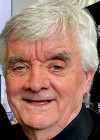Polka Dots Feature (1960-1971)
Photo Gallery -
Band Lineups -
Discography
- Audio samples -
Where Are They Now?
The Story
Editor's note: Every care
has been taken to present only factual information in our stories
based on first person reports, newspaper articles and photographic
archives. If you can add anything or correct info in this story,
please email us and let us know.
Our research on the Polka Dots starts with an article published in
the Ulster Herald in 1985 which celebrated Brian Coll's 25th
anniversary in show business. The Polka Dots got started in Omagh in
September, 1960 and the first reference we can find to the band was an advert in the
"Dance Band" page of the Irish Independent on December 3rd,
1960. There were also playing a gig later in the month listed as the
Polka Dots Dance Band (see below)
in the
Star Ballroom in their home town of Omagh.
However, the band had gotten
started three months earlier and played gigs without a name. Brian
took up the story in 1985, "For the first three months we were on
the road our band had no name and we asked people at the dances to
pick a name for us. Eventually we decided on the Polka Dots."
We're not 100% sure of the
original line-up of the band but we are confident that it included:
Brian Coll (vocals), Pat Owens (guitar), John Nugent (bass), Don
McLennan (drums), Eugene Nixon (sax), and Aidan McCallion (trumpet).
Early on they, like most
showbands, were mostly local playing dances, functions and even some
weddings, but they were soon spreading their wings.
By June, 1961 they had played
in the Savoy Ballroom in Castlerea, which as far as we can tell may
have been their first trip outside of the North. By late 1961 they were playing venues around the country on a more
regular basis.
In early 1965, the band underwent
several major changes when former Capitol drummer, Mickey
O'Hanlon took over as the band's manager. Around the same time,
Brian Coll quit the band to rejoin the Plattermen and John
Nugent left as well and he was replaced by Robb Armstrong (soon to
be known to the world as Rob Strong). The band went into the studio
and recorded their first tracks, but these were not released at the
time.
In early 1966, the band finally
released its first single, One for the Road with Old
Memories Keep Returning on the B-side both sung by Frankie McBride. Although
the single didn't make any impression on the charts, it finally
established the band as a bona fide recording outfit which was a
major step taken by most of the showbands in the mid to late 1960's.
As was the case in those days, most of the band's records would be
released as "Frankie McBride" with the band getting no mention. This
would become a common trend as it was the lead singers the record
companies wanted to promote, even if they left their previous band
(which became more and more the norm as the sixties came to an end).
Gregory would
be first to leave, joining the Cadets in April 1966. The band would
release a second single, A Cottage in Old Donegal, the following
April. As Frankie was now the sole lead singer in the band, adverts
would be for "Frankie McBride and the Polka Dots."
Although the new
single did not make the Irish charts, all that would change a few
months later.
Five Little Fingers
In June, 1967, the band would undergo several major changes in their
line-up. First, Rob Strong left to join the Plattermen, while their
bass player, Sean Hamilton, would come to the Polka Dots to play
drums along with guitarist Arty McGlynn. Rob would be replaced by
Derry born Richard Duffy who had previously played with the Masters
Showband. In late June they also released their third single, "Five
Little Fingers."
There aren't many Irish showbands that can claim success in the
British single charts, but Frankie McBride of the Polka Dots is one
of them. In the summer of 1967, his single, Five Little Fingers,
reached number 19 in the UK charts. The massive success of the
single resulted in rumours that Frankie would be leaving the band to
pursue a solo career. However, Frankie stayed with the band, saying
in a 1967 Spotlight interview, "I have been very happy with the Dots
and we have come a long way together. We are looking forward to even
greater things."
The success of the single gave the
band a new lease on life and Frankie appeared on several English TV
shows as the record continued to climb up the English charts.
Frankie and the band were the "hottest" property on the ballroom
scene through the late summer of 1967 as their record continued to
climb the British Charts towards the top twenty and they received
massive publicity across the whole of the Irish media. In October,
Frankie became the first Irish singer to ever crack the British top
twenty.
The band's follow-up to Five
Little Fingers was "Burning Bridges," which did make the Irish
charts at number 11, but failed to make any impression in England.
However as 1968 started the band was still riding the crest of the
publicity wave and with a second top Irish hit, things were looking
good. They changed management to Barney Curley and Frankie was named
as one of the singers for the
Irish National Song Contest singing "You're Not There At All"
written by Hedley Kaye of Dublin. Due to the success of the previous
year, his involvement received major coverage but in the end, he
failed to get out of the first heat of the contest (there were two
heats with eight songs and singers each) and that year "Chance of a
Lifetime" represented Ireland at
Eurovision. (As an aside, Pat McGeegan's song almost didn't make
it to the final having been overlooked by the judges, even though
the jury had voted it go through to the final.)
Although the band continued to
release singles, as well as an album, "Frankie McBride Sings," chart
success eluded them and they settled into life on the road, which
was probably somewhat dampened after the massive success of the
previous year.
In March, 1970 an article in the Ulster Herald
reported a major shakeup for two Omagh based bands, the Buckaroos
and the Polka Dots. Barney Curley announced the Polka Dots were
changing their names to the Avengers, but would be retaining Frankie
McBride as lead vocalist. Three of the Buckaroos would be moving
over to the revamped band: John Trotter, Patsy "Pio" McCann, and
Gerry Quinn. Subsequently, they decided to keep the Polka Dots name
due to pressure from promoters.
In November, 1970, Frankie
announced he was leaving the Polka Dots to start a country band of
his own. To coincide with the launch of the new outfit, Emerald
planned a release of a new single, Daddy's Little Man, while the new
band was rehearsing. On November 12th, an article in the Connaught
Telegraph reported that the Times' manager, Greg Hughes was to take
over the management of Frankie and the Dots. On November 14th, the
Evening Herald reported that Frankie was joining the newly formed
Highwaymen and his last date with the Dots would be November 15th in
Omagh. The new single was released as Frankie made his debut with
the Highwaymen on November 20th. It was also reported that Greg
Hughes had not yet committed to taking over the band's management.
The Highwaymen were made up of the remnants of the band the
Newliners.
In July,
1972, Frankie had moved on to a new band, Rio Grande, which included
Barry McAllister (keyboards), Brendan Sweeney (guitar), Martin Coll
(guitar), Don Sherry (bass), Anthony Hughes (drums) and Frankie
(vocals).
In the meantime, Pio McCann of the band, spotted a
young singer at a local talent show which turned out to be Hugo
Duncan, who had just left the Melody Aces after six months. He was
introduced to the band and replaced Frankie, but the magic was gone
and the band disbanded after only a few months.
By 1976 he was touring the cabaret
scene with a trio still called the Polka Dots.
Still on the road in 1980.
More to come.....
click on thumbnails for full image































